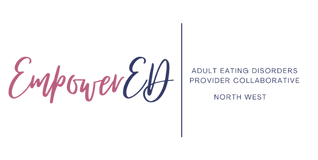For Eating Disorder Awareness Week 2023, an Expert by Experience who wanted to remain anonymous has shared his experience.
"I don't think that my experiences are atypical and I struggle with the fact that the services that are available are primarily designed with girls/women as their client group.
"I never truly received any help for my eating disorder and I'm not sure that I would have wanted to engage with that because at the time it had a very important function for me and I wasn't ready to give it up.
"That is looking back with hindsight, however if I had been given a proper opportunity maybe when I was younger, my life would have turned out differently."
I grew up in a family where my mother has an undiagnosed eating disorder of restrictive anorexia with significant rules around food about must leave the table hungry, never finish the food on your plate, and the exact opposite from my father, so pulling and conflicting messages.
In my teens I identified that I was having my own concerns around food and was restricting and was even pulled aside in school by a teacher to question this. I denied there were any problems but continued to lose weight.
I had multiple suicide attempts and ended up in hospital secondary to that. As a young adult I moved to live in a large city and each time that I engaged with healthcare they commented on my weight but assumed that it was other reasons, rather than me restricting.
I did end up in hospital numerous times but managed to get myself out and each time rather than having follow-ups I would move and disengage with my general practise to avoid detection.
In my mid 20s I suddenly realised that I had gained weight and was not restricting as much and I was okay. I was happy and this continued on for the next 10 years or so, and then I had another blip and lost weight really rapidly.
A common theme that spread throughout my entire eating disorder is that people made assumptions whether in the street or even through medical professions that my low weight was because I was either homeless or drug user, never did people directly question if I had an eating disorder unless they had personal experiences of it themselves.
I don't think that my experiences are atypical and I struggle with the fact that the services that are available are primarily designed with girls/women as their client group.
I never truly received any help for my eating disorder and I'm not sure that I would have wanted to engage with that because at the time it had a very important function for me and I wasn't ready to give it up.
That is looking back with hindsight, however if I had been given a proper opportunity maybe when I was younger, my life would have turned out differently.
